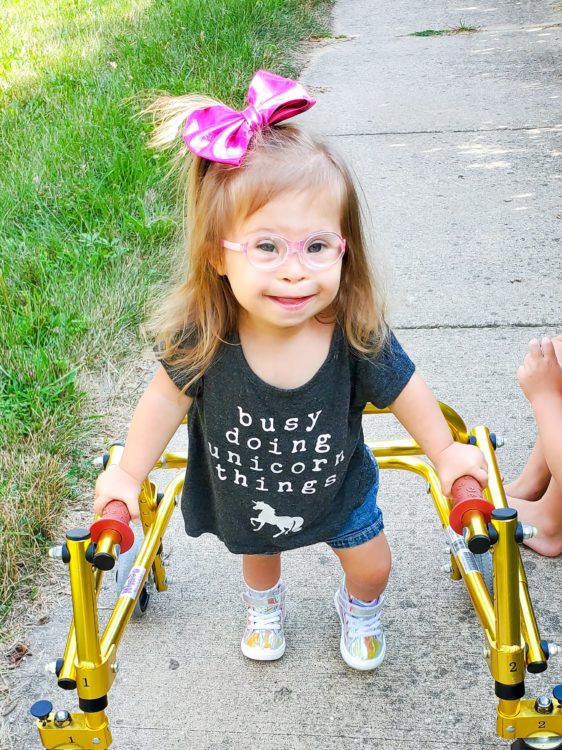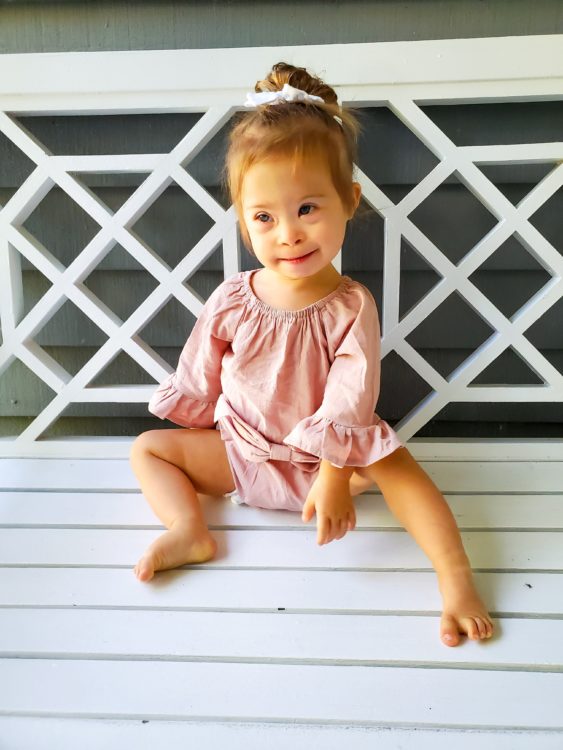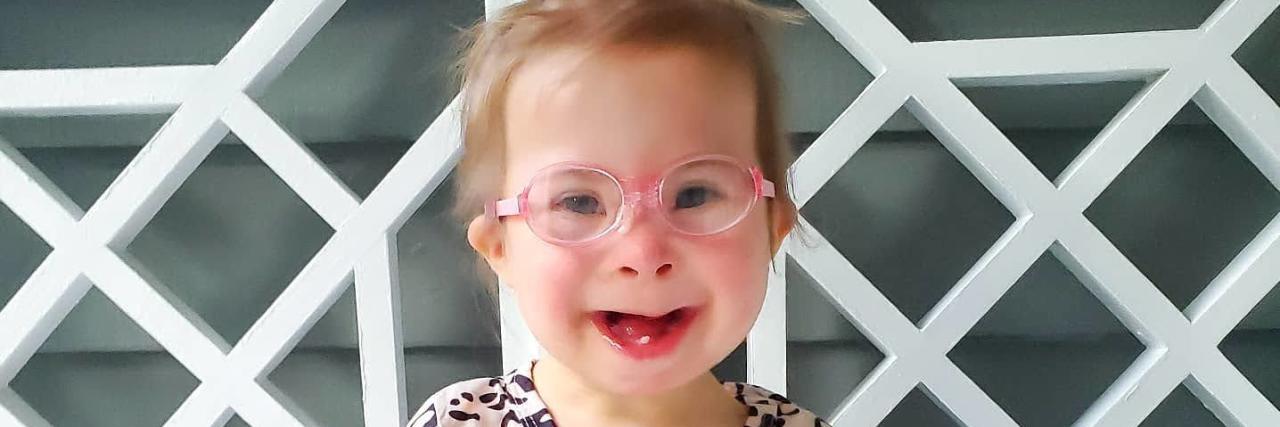This is something that has been on my mind for a while. Trying to articulate my thoughts has been tough.
As a community, a phrase we use very often is “more alike than different.” We want the world to know that a person with a disability has far more in common with a typical person than not. Ivy may have an extra chromosome, but she laughs and cries. She adores her family and her doggies. She loves to swing and splash in the bath. Her similarities vastly outweigh her differences.
But here’s the thing. People will say to me “Ivy doesn’t even look like she has Down syndrome.” They think they are paying me a compliment; that I don’t want them to notice that Ivy has features of Down syndrome. That by saying that they mean she looks “normal” and shouldn’t I be relieved.
Here’s the crux of the problem. To most of the world, disability is bad. It is not normal. It is something to be pitied. The thought that I could truly not want to change a thing about Ivy is completely unimaginable to many people.
Yes, Ivy has Down syndrome, and of course, I don’t want that to be all you see. I want you to see that she is sweet, stubborn and silly. I want you to notice that just like any 2-year-old she loves her family, swimming and music.
But just because I want you to accept that she is more alike than different, it doesn’t mean I don’t want you to see Down syndrome. Because that extra chromosome is just as much a part of her as those other things. And it’s not a bad thing. It’s beautiful. I love that extra chromosome. It gives her tenacity. It gives her those gorgeous and sparkling almond-shaped eyes. It has given her medical challenges that have made her strong and brave. I don’t love the medical challenges themselves, but they are a part of her and we’ve overcome them together.

Right now her disability means that we have countless appointments and therapies. It means she requires physical supports like SMOs (foot braces), a gait trainer, and a walker. It means that she is fully G-Tube fed which comes with a lot of equipment and hurdles. It means that at 2 years old she cannot communicate with words but is learning sign language. Acknowledging her disability looks like planning for her needs when we go on outings. It means planning for her feeding needs. It means learning sign language with her so that she can communicate with all of the important people in her life.
As she grows, parts of her disability may bring bigger struggles. Communication struggles that may manifest in behavior outbursts. Low impulse control. Elopement. These are parts of her disability that can’t be ignored. They will require supports in place at school. They will require empathy and understanding from people who encounter her in public spaces. You can’t ignore her disability or pretend that it doesn’t exist. It is a part of her. It will always affect our lives. It doesn’t mean she should be secluded or ostracized, but to imagine that she should be treated exactly like every other child is just not possible.
Of course, in the ways that matter — love, friendship, respect, connection… she should be treated just as all people should regardless of race, gender, ability or any other difference.

Recently in a podcast, I heard a quote that deeply moved me. It speaks so much to this subject.
“Treating different things the same can generate as much of an inequality as treating the same things differently.”
-Kimberle Crenshaw
Just sit with that for a moment. It is deep. It took me some unpacking to understand all the layers. People can end up getting it so backwards.
Treating different things the same — to me that speaks to Ivy’s disability. She has some needs that cannot be treated the same as other kids. It is why she has an IFSP (individualized family service plan) right now and will have an IEP (individualized education plan) when she turns 3. This is the reason I want you to see my daughter’s disability. She has different needs that just cannot be treated the same as her typical peers. And that is OK!
Treating the same things differently — to me, this speaks to Ivy’s humanity. Like I said before, she is more alike than different. She is human just like you and me. She has the same basic needs for love, communication, respect and connection. She deserves to be included in her world. Her disability should not take away from that.
As I was working through all these thoughts it struck me that they also apply so much to race, sexuality, religion… really any way there is diversity in humanity. We cannot pretend that BIPOC (Black, Indigenous, people of color) have had the same lived experience as White people. We know that white privilege exists. Therefore we cannot treat those different things the same. We need to be conscious of our bias. We need to dismantle systemic racism.
And just like people with disabilities, BIPOC and people in the LGBTQ communities are human. Their humanity is the same as any other person on this planet. We cannot treat their humanity any differently, though unfortunately, it happens every day. They have the same basic needs of love, connection, value and respect. We cannot treat people who are different than us as any less, because they aren’t.
In the end, I believe we need to acknowledge and appreciate every difference in humanity. We need to treat all people with the same respect and give them the same value. But we also need to see the differences to be able to account for them in important ways. We need to see the differences and realize that they are beautiful!

